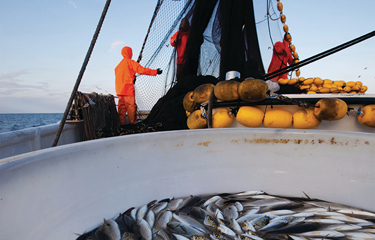NOAA announces major SIMP expansion proposal

Officials with NOAA Fisheries have announced a plan to expand the Seafood Import Monitoring Program (SIMP), with a proposal that would more than double the number of species it targets.
SIMP was created six years ago to block the import of select seafood products that had been mislabeled or harvested through illegal, unreported, and unregulated (IUU) fishing. It requires importers to show detailed information to inspectors upon entry at a U.S. port for 13 species or species groups that include about 1,100 individual species, according to a release from the agency.
Besides adding seafood species to the list of those requiring additional documentation for importation, the proposal adds clarifications on what importers are responsible for and includes new language mandating importers provide chain of custody data through electronic means, if requested, according to a statement the federal agency released on 27 December, 2022.
NOAA Assistant Administrator Janet Coit said in a release that officials want to deter more importers of illegal or fraudulent products from selling in the U.S.
“The program is one of several tools NOAA Fisheries utilizes to combat IUU fishing and ensure the U.S. remains a global leader in the effort to safeguard the sustainability of marine species worldwide,” Coit said.
Reports indicate that the U.S. imports about 85 percent of the seafood Americans consume annually. But SIMP currently only covers about 40 percent of the products shipped to the U.S. from other countries.
In March 2022, NOAA Fisheries told the U.S. Congress it was evaluating the program to determine if the current species or species groups – abalone, Atlantic cod, Pacific cod, Atlantic blue crab, red king crab, dolphinfish, grouper, sea cucumber, northern red snapper, shark, shrimp, swordfish and seven species of tuna – were still at risk. That evaluation also included another review of species previously considered for inclusion and additional species that were either among the top 50 imports or listed in reports for IUU fishing – which can include products harvested by fishing operations that rely on slave labor or human trafficking.
“[NOAA] believes that the initial 13 species and species groups remain at risk and none should be removed from SIMP, and that two single species in SIMP should be expanded to larger species groups to minimize the risk of mislabeling and product substitution to bypass SIMP requirements,” the agency said in its proposal, which was posted on the Federal Register on 28 December, 2022. “In addition, [NOAA] identified five new species for possible inclusion in SIMP due to IUU fishing and/or seafood fraud concerns.”
There have been repeated calls from environmentalists and other groups to expand SIMP. In December 2022, 16 U.S. House lawmakers called on the agency to provide a timeline for when SIMP would be expanded to include to cover all species.
By extending the program to 18 species or species groups, the number of individual species that would be included in SIMP would expand to about 1,670, an increase of roughly 570, depending on categorization. The new species or species groups to be covered by SIMP include cuttlefish and squid, eel, octopus, queen conch, and Caribbean spiny lobster.
With the posting on the Federal Register, the agency has initiated a 90-day public comment period, set to end 28 March, 2023. No comments have been posted yet regarding the proposal on Regulations.gov, but several stakeholder groups have told SeafoodSource they plan to file remarks with NOAA Fisheries within that window.
National Fisheries Institute Vice President of Communications Gavin Gibbons told SeafoodSource that the industry trade group is opposed to IUU fishing – and that SIMP doesn’t help combat it. While the trade group is continuing to review NOAA's proposal, Gibbons pointed out the agency’s report to Congress in 2022 acknowledged SIMP does not stop illegal products from entering the U.S. market, and that the primary goal of the program was to protect at-risk species.
“Attempts to expand SIMP to other species, under the guise of a more-comprehensive program, undercut an actual focus on risk,” Gibbons said. “NFI is committed to sustainable seafood trade and will participate in the comment process as this proposal moves forward.”
Others, including Oceana Vice President for the United States Beth Lowell, called the proposal long overdue. The advocacy group noted in a report last year that squid, octopus, and spiny lobsters are among the species most at-risk from IUU fishing practices.
“As one of the largest seafood-importing countries, the United States has both the purchasing power and the responsibility to combat illegal fishing and its associated human rights abuses, and we can’t fully do so without expanding the seafood import control rules to all seafood,” Lowell said.
Photo courtesy of NOAA Fisheries






Share